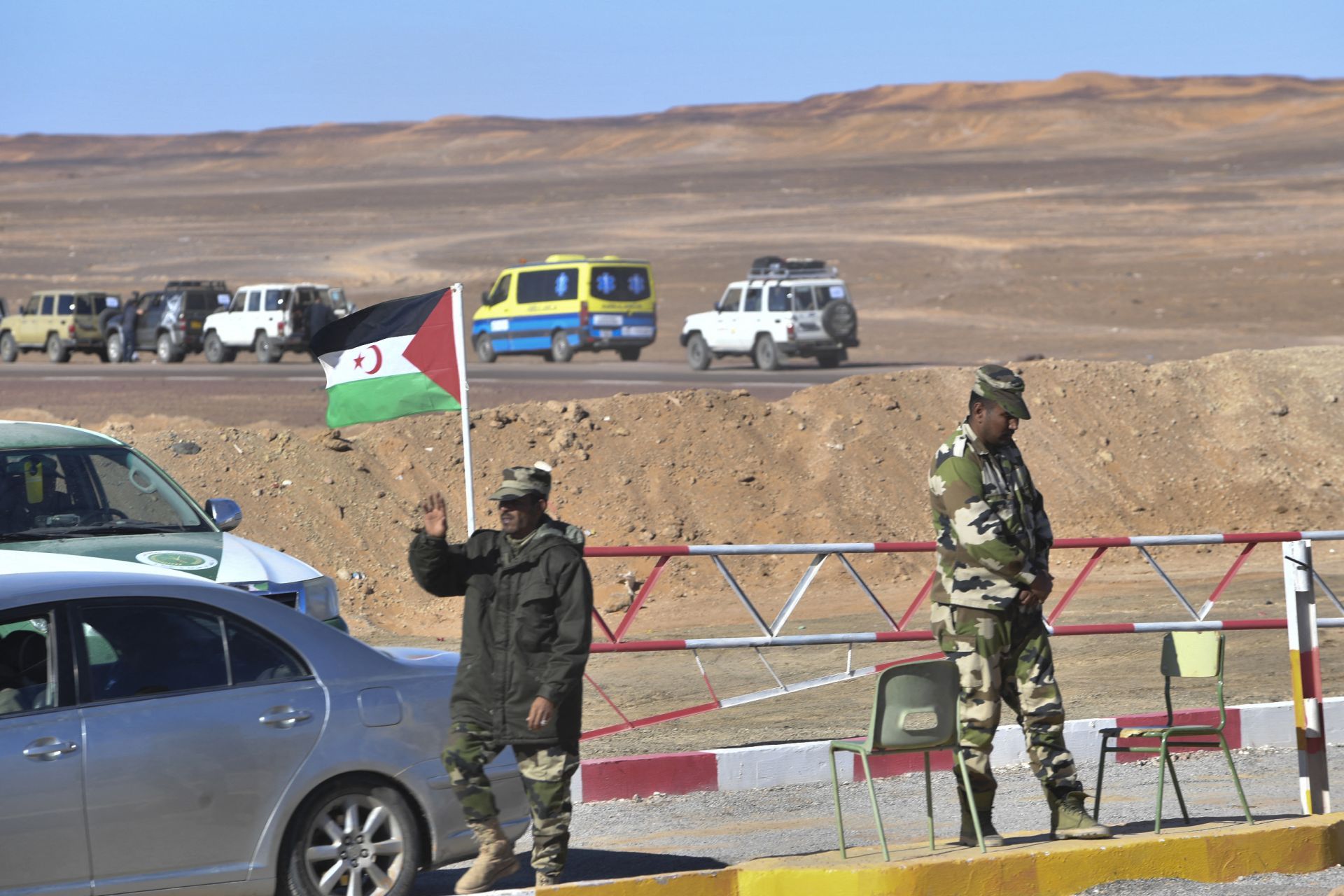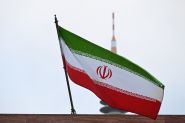- Home
- Middle East
- Western Sahara: The Diplomatic Battle Rages On

©©Ryad Kramdi / AFP
A week after the adoption of UN Resolution 2797, Morocco hails what it calls a diplomatic victory, while Algeria criticizes what it sees as a biased interpretation of the text. Amid celebration, abstentions, and rising tensions, the decision renews MINURSO’s mandate without settling the question of Western Sahara’s status.
The resolution extends the mandate without resolving the dispute. On October 31, the UN Security Council adopted Resolution 2797, extending MINURSO’s mandate—the United Nations Mission for the Organization of a Referendum in Western Sahara established in 1991—for one year. The resolution passed with eleven votes in favor, none against, and three abstentions from Russia, China, and Pakistan.
Algeria, a longtime supporter of the Polisario Front, chose not to participate, denouncing the text as “biased” in Morocco’s favor. Contrary to some interpretations circulated after the vote, the resolution does not recognize Moroccan sovereignty over the territory. It reaffirms that the autonomy plan presented by Rabat on April 11, 2007, remains a “realistic and credible solution.”
Autonomy or Self-Determination: Two Irreconcilable Views
For Rabat, autonomy in Western Sahara would mean local governance under Moroccan sovereignty, with its own institutions, including an executive, a parliament, and a judicial system. The “autonomous region of the Sahara” would have a government and its head, parliamentary representatives from the various Sahrawi tribes, and officials elected by universal suffrage. Courts would be overseen by a High Tribunal, while foreign affairs and religious matters would remain under the kingdom’s authority.
For the Polisario Front and Algeria, only a popular consultation, a self-determination referendum, would allow the Sahrawis to freely decide their future. This enduring divide between internal autonomy and external self-determination has blocked any lasting solution for more than three decades.
A One-Year Extension and a Legal Debate
The resolution no longer mentions a self-determination referendum, which has been central to MINURSO’s mandate since its creation. This shift reflects a gradual evolution of the UN framework. Originally tasked with organizing a referendum, MINURSO now primarily monitors the ceasefire and maintains the status quo.
From an international law perspective, the International Court of Justice (ICJ) issued an advisory opinion in 1975 recognizing historical ties between Morocco and Western Sahara, without granting territorial sovereignty. The ICJ emphasized that the principle of self-determination fully applies to the Sahrawi people—a legal foundation still guiding UN actions in the territory.
Western Sahara also remains on the UN list of “non-self-governing territories,” alongside Gibraltar and the British Virgin Islands. In practice, no UN member state can officially recognize Moroccan sovereignty over the region, even though more than eighty countries support Rabat’s autonomy plan.
Which Countries Support Morocco’s Plan?
In recent years, several countries have renewed or formally confirmed their support for Morocco’s autonomy plan, including France, the US, and Spain.
During a three-day state visit to Morocco in October 2024, French President Emmanuel Macron reaffirmed his backing of the kingdom’s sovereignty over Western Sahara. The US, while adopting a more measured tone under the Biden administration, has not reversed the recognition of Western Sahara as Moroccan territory, initially granted by former President Donald Trump in 2020.
Madrid, the former colonial power, also endorsed Morocco’s position in 2022, sparking a diplomatic rift with Algiers. The United Arab Emirates further signaled support by opening a consulate in Laâyoune, demonstrating Gulf backing for King Mohammad VI’s vision.
Google Maps Removes Dotted Lines
On Google Maps in Morocco, the dotted lines traditionally marking the boundary between Western Sahara and the kingdom disappeared, reported AFP journalists on November 1, the day after the UN vote. The change appears to only affect maps accessed from within Morocco. Elsewhere, including the US, Cyprus, France, and Algeria, the dotted lines remain. Google has not commented on the alteration, and only the company can modify how its maps are displayed.
Reactions in Rabat and Algiers
In Morocco, the October 31 vote was celebrated as a diplomatic victory. Spontaneous celebrations erupted in several cities, sometimes without a clear understanding of the resolution’s content, according to testimonies collected on the ground. In a formal statement, King Mohammed VI praised the Security Council’s decision and called for “building bridges of fraternity with Algeria.” A few days later, he announced the creation of a new national holiday, “Aid Al Wihda,” or Unity Day, to be celebrated each October 31 in honor of the resolution.
In Algiers, the response remained firm. In a lengthy interview with the Algerian channel AL24 News, Foreign Minister Ahmad Attaf condemned what he described as an “initially biased” text, asserting that Morocco sought to “impose its autonomy plan by force and erase the principle of self-determination.” He welcomed amendments proposed by several states that preserved MINURSO’s role and kept the Sahrawi right to self-determination at the center of the final text.
The United States Clarifies Its Position
Massad Boulos, key senior adviser to Donald Trump on Africa, told Al Hadath and France 24 this week that Resolution 2797 “clearly reaffirms the Sahrawi people’s right to self-determination,” while emphasizing that the method of implementation—whether a referendum or another process—“remains to be defined by the parties under UN supervision.”
Abstentions, Caution, and Diplomatic Tensions
The abstentions of Russia, China, and Pakistan reflect a desire to remain neutral on a highly polarized issue. Moscow criticized the lack of transparency in drafting the text, while Beijing emphasized the need for a resolution consistent with the UN Charter. These positions have been seen as a distancing from Algeria, though Algerian diplomats interpret them as a demonstration of consistency within the UN framework.
Tensions were further inflamed by an incident involving Moroccan representative Omar Hilale, who was filmed covering the Algerian flag during a UN photo. In Algiers, the gesture was widely condemned as an unnecessary provocation and considered unbecoming of a diplomat.
The Green March
On November 6, Morocco marked the 50th anniversary of the Green March. In 1975, 350,000 Moroccan volunteers peacefully marched into Western Sahara to assert the country’s claim after the end of Spanish rule. Fifty years later, the symbolism remains strong: Morocco continues to insist on its territorial integrity, while the Sahrawis still demand the right to decide their own future.
Western Sahara has not been formally recognized by the United Nations as Moroccan sovereign territory. MINURSO remains in place to monitor the ceasefire and support a political resolution. Although Resolution 2797 still references the Sahrawi people’s right to self-determination, the framework has evolved, with autonomy under Moroccan sovereignty now promoted as the “most feasible” solution.
Overall, Western Sahara remains a disputed territory. Self-determination remains acknowledged in UN texts, but international momentum increasingly favors a negotiated autonomy plan over a full independence referendum. The situation remains under close watch.
Read more



Comments